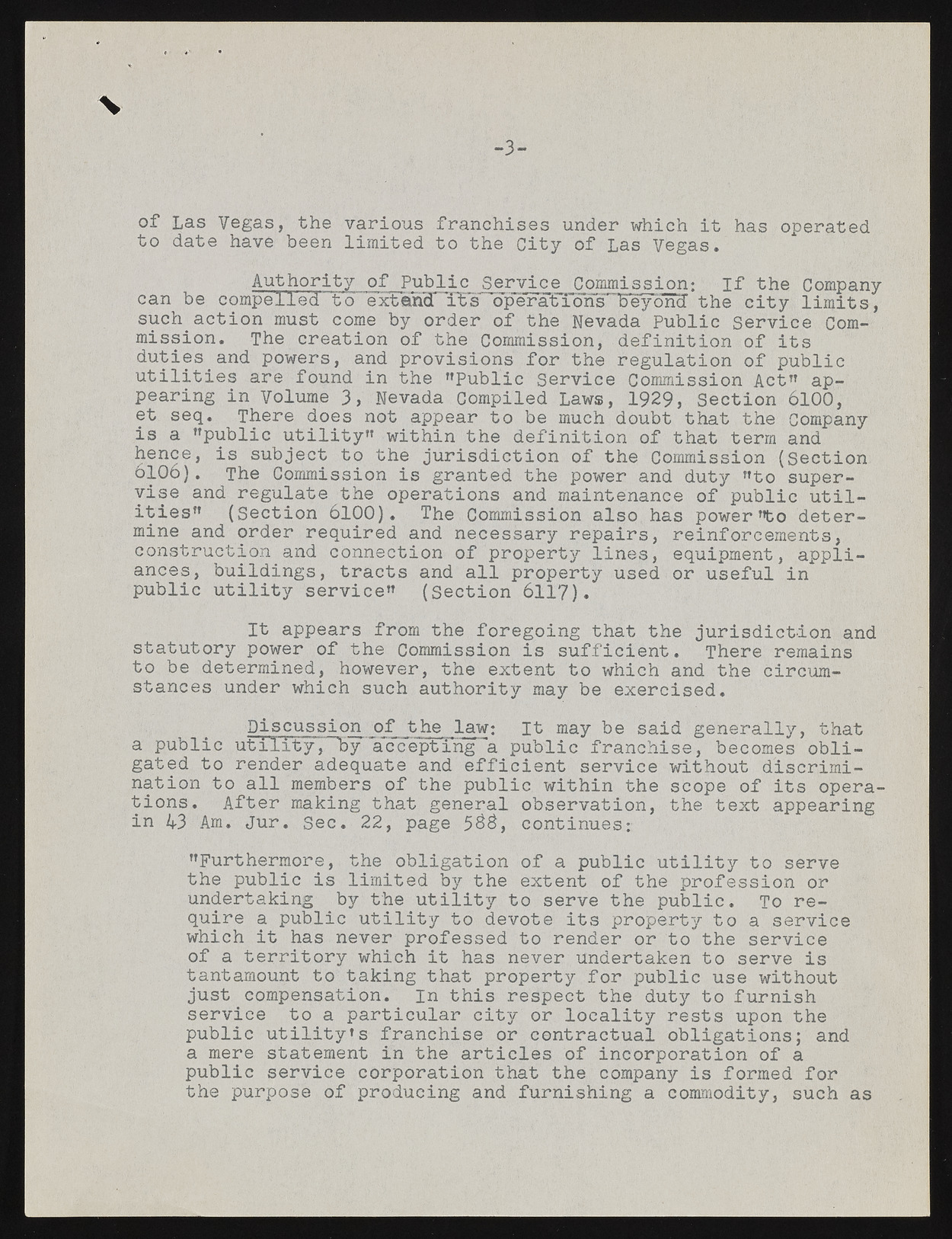Copyright & Fair-use Agreement
UNLV Special Collections provides copies of materials to facilitate private study, scholarship, or research. Material not in the public domain may be used according to fair use of copyrighted materials as defined by copyright law. Please cite us.
Please note that UNLV may not own the copyright to these materials and cannot provide permission to publish or distribute materials when UNLV is not the copyright holder. The user is solely responsible for determining the copyright status of materials and obtaining permission to use material from the copyright holder and for determining whether any permissions relating to any other rights are necessary for the intended use, and for obtaining all required permissions beyond that allowed by fair use.
Read more about our reproduction and use policy.
I agree.Information
Digital ID
Permalink
Details
More Info
Rights
Digital Provenance
Publisher
Transcription
? -3- of Las Vegas, the various franchises under which it has operated to date have been limited to the City of Las Vegas. Authority of Public Service Commission; If the Company can be compelled to exteM^TB^^operations^BeyonSr the city limits, such action must come by order of the Nevada Public Service Commission. The creation of the Commission, definition of its duties and powers, and provisions for the regulation of public utilities are found in the ’’Public Service Commission Act” appearing in Volume 3, Nevada Compiled Laws, 1929, Section 6100, et seq. There does not appear to be much doubt that the Company is a ’’public utility” within the definition of that term and hence, is subject to the jurisdiction of the Commission (Section 6106). The Commission is granted the power and duty ”to supervise and regulate the operations and maintenance of public utilities” (Section 6100). The Commission also has power ”to determine and order required and necessary repairs, reinforcements, construction and connection of property lines, equipment, appliances, buildings, tracts and all property used or useful in public utility service” (Section 6117). It appears from the foregoing that the jurisdiction and statutory power of the Commission is sufficient. There remains to be determined, however, the extent to which and the circumstances under which such authority may be exercised. Discussion of the law; It may be said generally, that a public utility^ by accepting a public franchise, becomes obligated to render adequate and efficient service without discrimination to all members of the public within the scope of its operations. After making that general observation, the text appearing in 43 Am. Jur. Sec. 22, page 5$$, continues; ’’Furthermore, the obligation of a public utility to serve the public is limited by the extent of the profession or undertaking by the utility to serve the public. To require a public utility to devote its property to a service which it has never professed to render or to the service of a territory which it has never undertaken to serve is tantamount to taking that property for public use without just compensation. In this respect the duty to furnish service to a particular city or locality rests upon the public utility’s franchise or contractual obligations; and a mere statement in the articles of incorporation of a public service corporation that the company is formed for the purpose of producing and furnishing a commodity, such as

